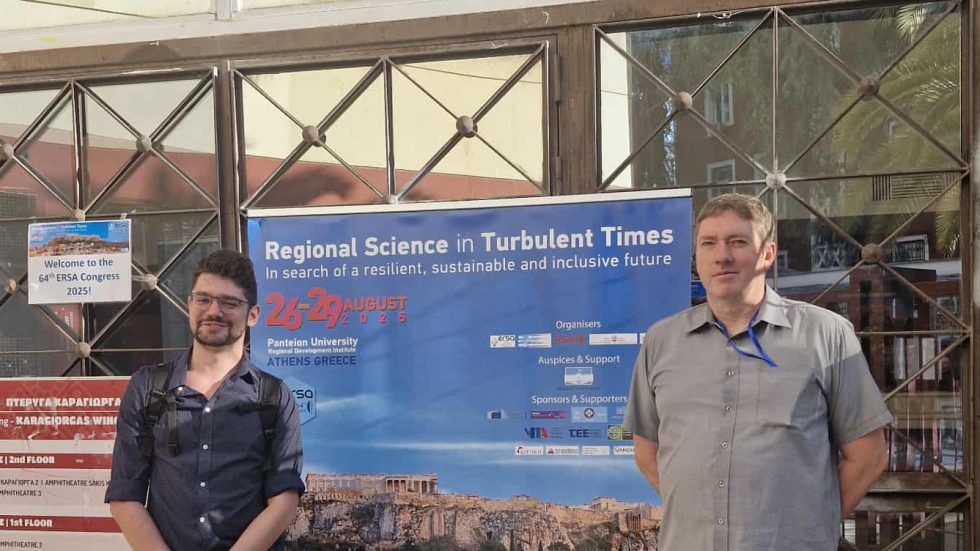Our colleague, András Igari PhD, participated in the 64th ERSA Conference held in Athens in August 2025. ERSA (European Regional Science Association) is Europe’s most important regional science organization, with hundreds of researchers participating in its conferences every year. This was also the case this year, where our colleague gave a presentation together with Péter Szabó PhD, associate professor and head of the Department of Regional Science at Eötvös Loránd University, and participated in the work of the section of Urban, Regional, Territorial and Local Resilience.
Their joint presentation, entitled ‘Regional aspects of complex impacts of the COVID-19 pandemic in Europe’ explored the economic and labour market effects of COVID-19 in European regions. Their study, based on an analysis of literature, online news, and regional statistical data, showed that the economic and labour market disruptions caused by the COVID-19 crisis were significant in 2020, but were followed by a rapid recovery starting in 2021. Most regions of Europe were economically resilient during the COVID-19 crisis, while in some areas (the Mediterranean, the Alps) economic production only returned to pre-crisis levels in 2022, and in other regions the economy grew in all the years examined. Employment recovered more slowly, with significant regional disparities, which were significantly influenced by individual government policies. The crisis had specific effects in certain areas, such as a significant decline in youth employment, the spread of special forms of work, and the prolonged crisis in tourism.

